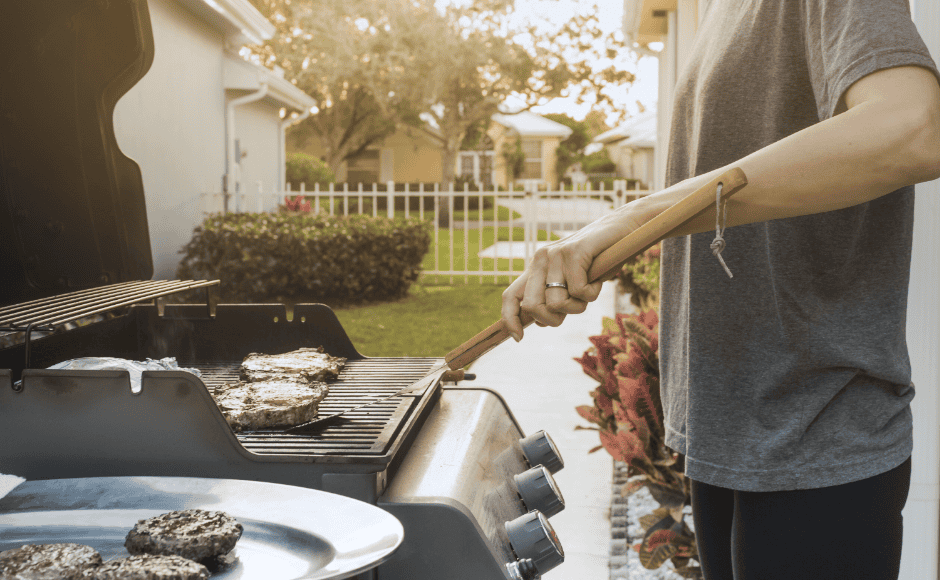
It’s time for one of the best and most delicious parts of summer: outdoor grilling and barbecuing. Yet all too often, the energy consumption and environmental impact of traditional al fresco cooking methods get overlooked. Don’t worry: you can reduce your carbon footprint while still enjoying the great outdoors. Here’s how to keep your summer cookouts green and energy efficient.
Choose the right grill
Different grill types have different impacts on energy consumption and emissions:
- Charcoal grills. While popular for their smoky flavor, most charcoal grills emit more carbon dioxide than propane grills. Traditional charcoal burns at a higher temperature, releasing more carbon into the atmosphere. However, if you can’t part with your old-school ‘cue, use biodegradable charcoal (such as coconut charcoal), which is made from sustainable materials and is less harmful to the environment.
- Propane grills. Propane is more energy efficient than charcoal and cleaner in terms of airborne particulate emissions. It provides better control over cooking temperature, which can also conserve energy.
- Electric grills. Electric grills are the most environmentally friendly option if your electricity comes from renewable sources. They produce no direct emissions and are very efficient.
- Solar cookers. For the truly eco-conscious, solar cookers use no fuel other than the sun and can cook anything from meats to vegetables.
Use your grill and fuel efficiently
Whatever your grill type, maximize its fuel efficiency and your cooking methods to reduce waste and emissions:
- Limit preheating time. Gas grills only need about 10 minutes to preheat, while charcoal should start cooking as soon as the briquettes are gray and ashed over.
- Maintain your grill. A clean grill cooks much more efficiently than a dirty one. Residue left over from previous uses can absorb heat, forcing your grill to work harder and use more fuel.
- Place your food strategically. Using zones on your grill for direct and indirect heat can help manage fuel use better.
- Keep the lid down. To speed up cooking time and reduce energy use, avoid leaving the lid open or checking food too frequently.
- Do batch cooking. Cook multiple items at once to make the most of the heated space and reduce the total cooking time.
- Use a thermometer. Using a meat thermometer ensures food is cooked perfectly, avoiding overcooking or the need for recooking.
Use sustainable accessories
Choose eco-friendly cooking accessories to complement your green grilling:
- Reusable utensils. Opt for long-lasting, washable utensils made from sustainable materials instead of single-use plastics.
- Eco-friendly cleaning products. Use natural cleaning products for your grill to avoid the harmful chemicals often found in conventional cleaners.
Enjoy a greener summer with Michigan Saves
Michigan Saves can help keep your energy bills down in the summer and all year long. Our home and business financing help you quickly turn your home or business into a comfortable and efficient space by paying for energy upgrades such as energy efficient windows, air sealing, and HVAC systems.
If saving money and energy is your goal, you’re in good hands. Get professional help from one of our authorized Michigan Saves contractors in your area. Start saving with us today!


